|
|
Last Modified on Oct 02, 2024
When you decide to enter into the real estate market, it can be quite intimidating. Depending on how much prior knowledge you are bringing into your venture, you may know next to nothing about how to prepare for what’s to come. That’s where a real estate attorney can really help. Having someone on your side who understands the market can make all the difference. You may ask the question, “What does a North Carolina real estate attorney do?”
What Does a North Carolina Real Estate Attorney Do?
Retaining the services of an experienced real estate attorney is absolutely essential and necessary when it comes to buying or selling real estate in North Carolina. If you are a first-time buyer, you may be ignorant when it comes to the real estate process. An experienced real estate lawyer can show you what to expect in your real estate venture.
In fact, many of the important steps necessary in purchasing real estate are considered legal matters that only a licensed attorney can help with. It is vital that you ensure that the real estate lawyer assisting you with your situation is properly licensed by the state of North Carolina. Otherwise, you could be looking at a potential problem.
A real estate lawyer has many different responsibilities that all reinforce one another when the time comes to assist you in purchasing real estate. Here are some responsibilities that you can expect from an experienced real estate lawyer:
-
- Preparing Legal Documents: One of the most important things that a North Carolina real estate lawyer brings to your venture is the preparation of certain legal documents that will need to be properly filled out. These documents include the actual sales contract, the mortgage note, and the deed to the property, among other important documents.
- Title Search: Another important task that an experienced real estate lawyer can help you with is fulfilling a title search on your behalf. Once you have completed the sales contract, a real estate lawyer will conduct a thorough search of the property’s title. This search is intended to identify any lingering financial issues still attached to the property, such as unpaid property taxes, deeds of trust, and any liens against the property.
- Identifying Fraud: There is always the unfortunate possibility that you are unknowingly entering into a scam. Real estate fraud is common, especially among first-time buyers. A real estate lawyer has the knowledge and the wherewithal to identify a scam and prevent you from making an enormous financial mistake. The last thing you want to be responsible for is a real estate scam that inflicts drastic financial losses.
- Resolving Conflicts: Not every real estate deal is going to go smoothly. Sometimes, deals can get emotional, and a real estate lawyer may be required to de-escalate things and resolve any disputes that might arise as a result of the pending transaction. If the dispute continues and can only be resolved in a court of law, your real estate lawyer can represent you.
- Closing: North Carolina state law requires that a real estate lawyer be involved in processing real estate transactions. When the closing process begins, your lawyer will need to help you finalize everything. Your lawyer does not have to physically be present to facilitate the closing, but they do need to be involved.
FAQs
Q: Does North Carolina Require an Attorney for Real Estate Closings?
A: Yes, North Carolina is one of the few states that requires an attorney for real estate closings. While the actual physical presence of a real estate lawyer is not necessary, state law mandates that a licensed real estate lawyer be involved in all residential real estate closings. This can be quite beneficial, as your real estate lawyer can ensure you aren’t being taken advantage of and can make sure you fill everything out properly.
Q: How Much Does a Real Estate Lawyer Make in North Carolina?
A: There is no real estimate as to how much a real estate lawyer can make in North Carolina. Every real estate lawyer’s fee is different depending on the details and circumstances of the cases they decide to take. Since the fees are always different, the real estate lawyer’s total gross income will be different, too. A lawyer’s salary is dependent on their experience, their education, their availability, and the available resources they have to devote to each case.
Q: Is North Carolina an Attorney or Title State?
A: North Carolina is very much an attorney state, not a title state. This means that a licensed real estate attorney has to be involved in the closing of all residential property transactions. Title states do not require the involvement of a real estate lawyer for property transactions as long as the closing involves the presence of title insurance. Title companies act as third parties who help facilitate the transaction between the buyer and the seller in certain states.
Q: What Is a Power of Attorney for Real Estate Closing in North Carolina?
A: A power of attorney for real estate closing in North Carolina refers to a legal document that allows someone to choose another person to represent them in the real estate closing process. This enables the chosen person to sign documents and finalize the property sale in the other person’s name. It grants them the authority to handle all aspects of the transaction on behalf of the property owner.
Reach Out to a Real Estate Lawyer Today
Real estate lawyers help with many different aspects of purchasing residential real estate. It can be difficult to go through the process without them. Getting involved in real estate can be especially stressful if you don’t understand every aspect of the process. A good lawyer can help you figure out everything you need to know.
The legal team at Thomas & Webber can help you in deciding what to do. It’s vital to have someone on your side who understands the market and can provide you with focused advice. Contact us today to speak with a team member about a consultation.





